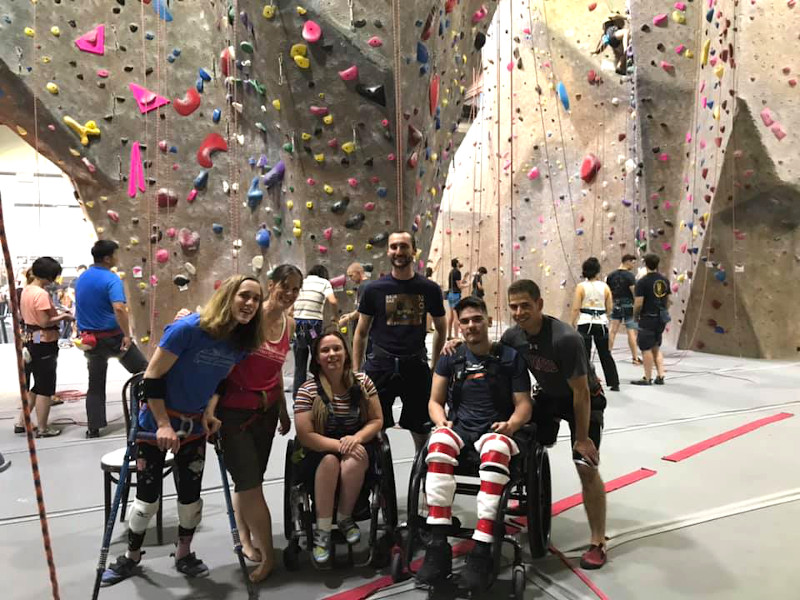We have some truly exceptional people in our Touchstone community, and one of them is Brent Kobs, Doctor of Physical Therapy, Certified Strength and Conditioning Specialist, and the leader of our adaptive climbing program at Diablo Rock Gym. Brent brings his wealth of knowledge and experience as a DPT and CSCS to climbers and athletes with disabilities in the Bay Area. In this interview, we talk with Brent about adaptive climbing, why it’s important, and his perspective on disability. Photos by Chloe Comhaire unless otherwise noted.
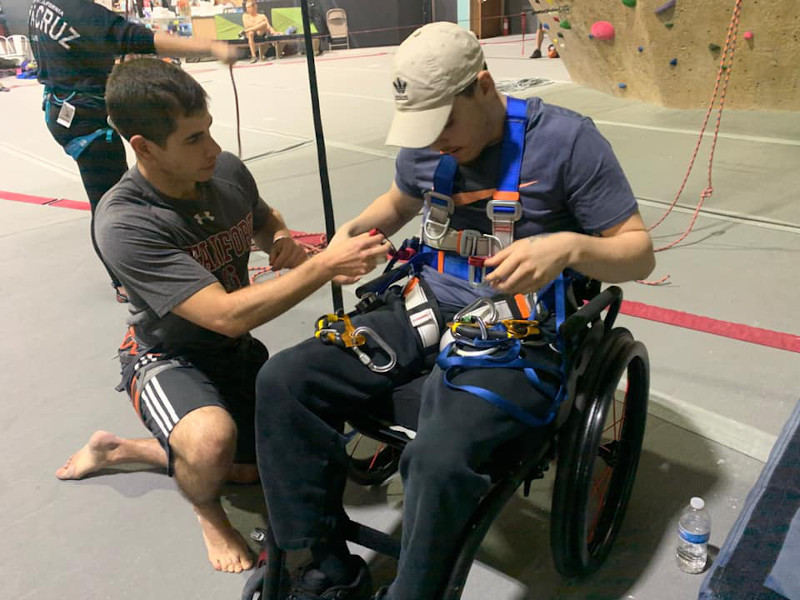
What is adaptive climbing?
Adaptive climbing means climbing for people with some kind of disability. Participants can have a wide variety of physical, sensory, or cognitive impairments that require some level of increased awareness or support. We have worked with many adaptive climbers who all have varying disabilities; upper and lower limb amputations, limb asymmetries, limb salvages, multiple epiphyseal dysplasia, post-stroke, traumatic spinal cord injuries, spina bifida, cerebral palsy, multiple sclerosis, visual impairments, and obscure neurological problems that don’t have a formal diagnosis.
Why is it important for gyms to offer adaptive programming/accommodations?
It’s not a question of if someone with a disability will enter a climbing gym, but when someone with a disability will enter a climbing gym wanting to give climbing a try. People with disabilities have the right to live life to the fullest. For some, climbing might be part of that. It allows people with disabilities to challenge themselves physically and mentally, and it’s an opportunity for personal growth and social interaction. Adaptive climbing programs also give able-bodied climbers a chance to interact with people who they might not normally come in contact with. It’s an opportunity to be creative, learn new things, build camaraderie, and give back to the amazing climbing community and society.
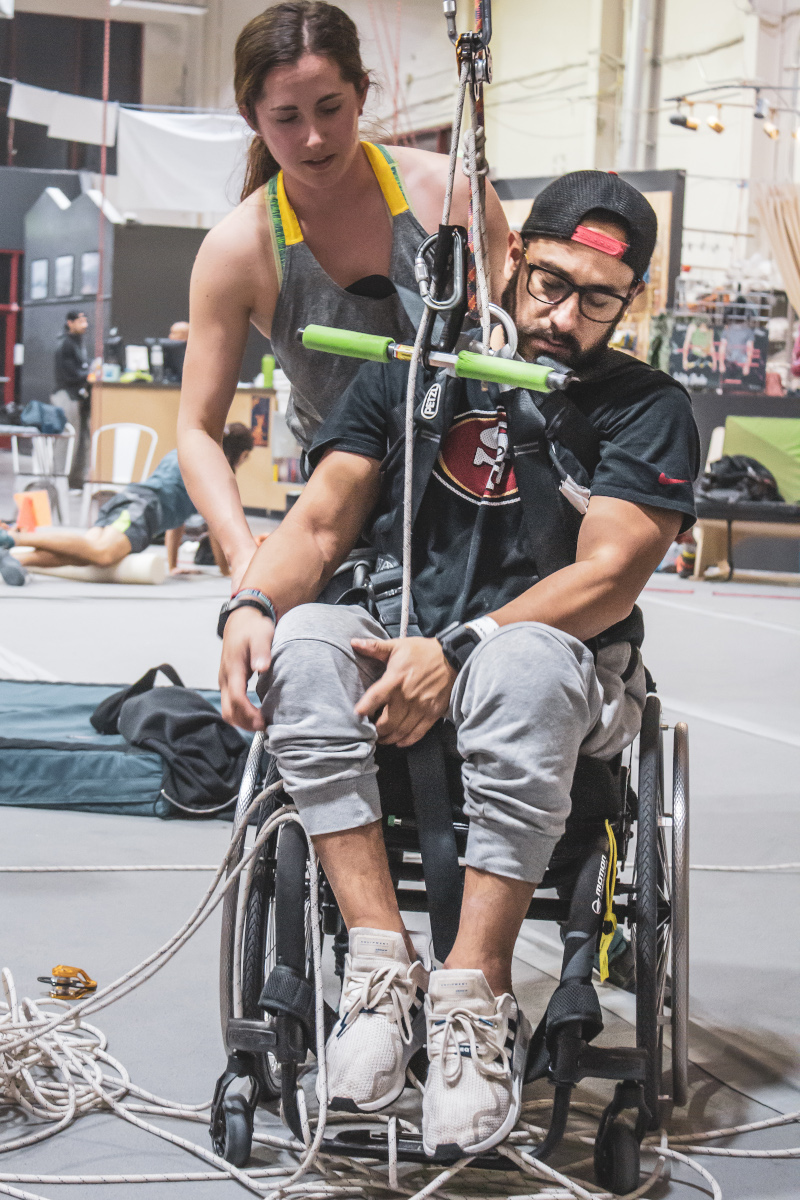
What is your background, and how/why did you come to be involved in this program?
I am a doctor of physical therapy with a strength and conditioning background, and an avid recreational climber. I first got involved in adaptive sports when I was in my last year of physical therapy school when I learned about an adaptive CrossFit program at San Francisco CrossFit run by Max Conserva. I volunteered with the first UCSF Orthotics & Prosthetics Adaptive CrossFit clinic and I was astounded at the ingenuity and determination displayed by the coaches and adaptive athletes. It was a great way for me to learn more about conditions and apply concepts that were briefly covered in PT school. I asked Max if I could continue to help out with the weekly adaptive CrossFit classes, and that was my start in adaptive sports.
I was astounded by the creativity of applying big wall climbing techniques to get participants up the wall.
After graduating PT school, I was thinking about what adaptive climbing would look like. Then I saw an opportunity to help with the Touchstone Adaptive Climbing program at Berkeley Ironworks. There too, I was astounded by the creativity of applying big wall climbing techniques to get participants up the wall. I picked up a copy of Paradox Sports’ Adaptive Climbing Manual and learned about how people have been running adaptive climbing programs. Once I felt that I had a good understanding of the concepts, I asked the manager at Diablo Rock Gym if I could use their adaptive equipment to practice what I had learned, and they were happy to let me do so. Once I felt I was proficient with the setups, I coordinated with the gym on launching the Adaptive Climbing meetups at DRG.
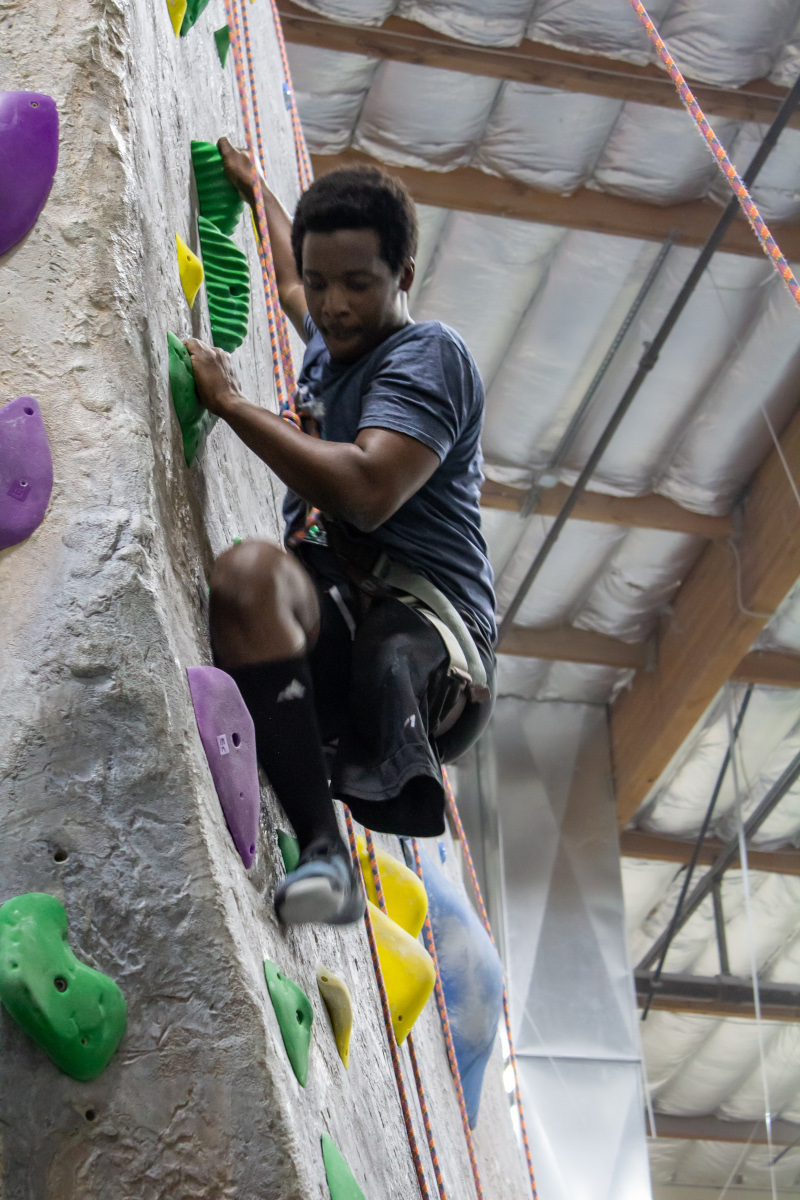
Tell us a little bit about the monthly meetup events at DRG. How would someone (either a prospective volunteer or participant) become involved with these meetups?
Our 2nd Friday meetups are a chance for people to experience adaptive climbing, both as climbers and as volunteers. Through careful planning and a community of supportive member volunteers, we are able to provide a safe and supportive place for new and experienced adaptive climbers to try hard, push their limits, and learn how to belay so that they can ultimately participate in this sport as any other climber would.
In the end, our goal is to make adaptive climbing something that is not special, rather something that is commonplace. We want to treat every individual as a person first.
Volunteers are taught how to set up pulley systems and other ascension techniques, and are encouraged to try simulations of adaptive climbing to help them better understand climbing from an adaptive climber’s perspective. We try to create an environment where adaptive climbers and volunteer climbers interact with each other to a point where the distinction between the two are blurred. In the end, our goal is to make adaptive climbing something that is not special, rather something that is commonplace. We want to treat every individual as a person first.
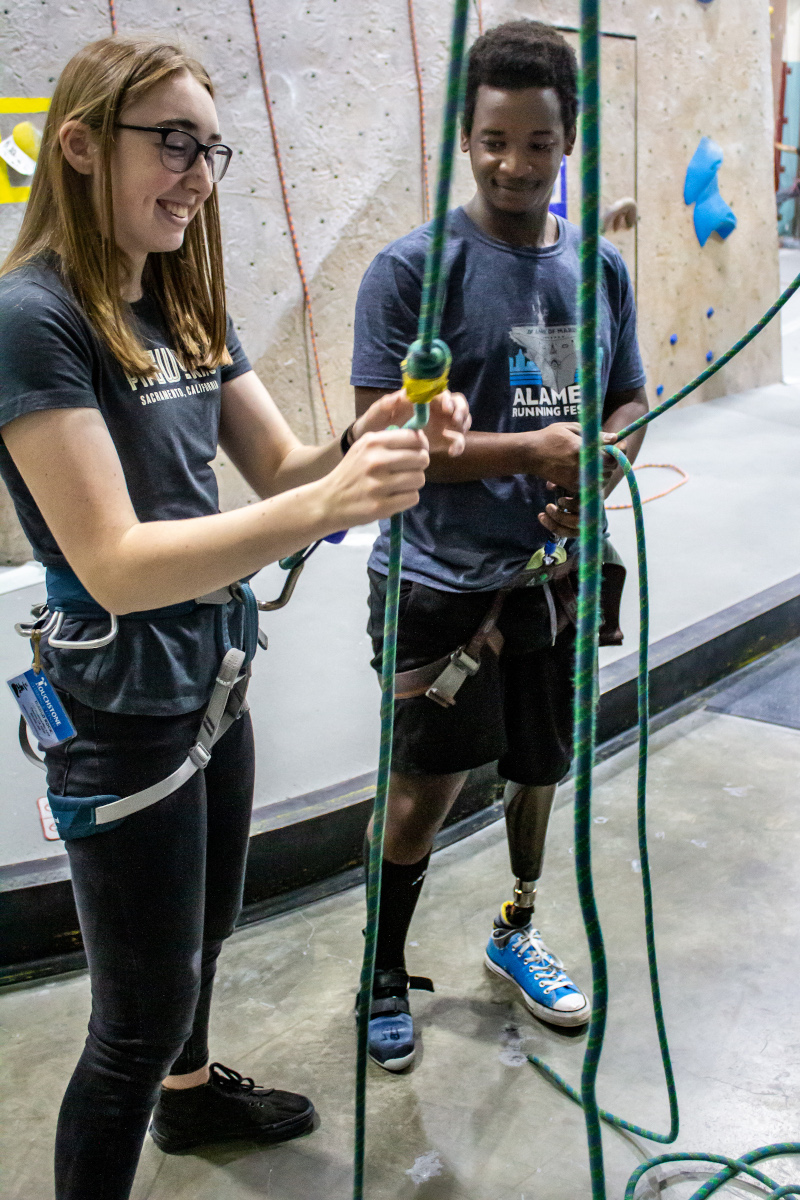
Prospective volunteers and participants are invited to join us for our 2nd Friday meetups. We also have social media pages where we announce impromptu meetups and other relevant posts (@adaptive_climbing on Instagram and Adaptive Climbing on Facebook). I have also setup an email address [email protected], where folx can contact me with any questions they might have about our meetups or adaptive climbing in general.
We have a Code of Conduct for our adaptive climbing meetups:
1. Be Safe
2. Be Humble
3. Be Respectful
4. Be Kind
5. Be Courageous
6. Be Open-Minded
7. Give Feedback
8. Have Fun!
Basically, have a good attitude and be a good person.
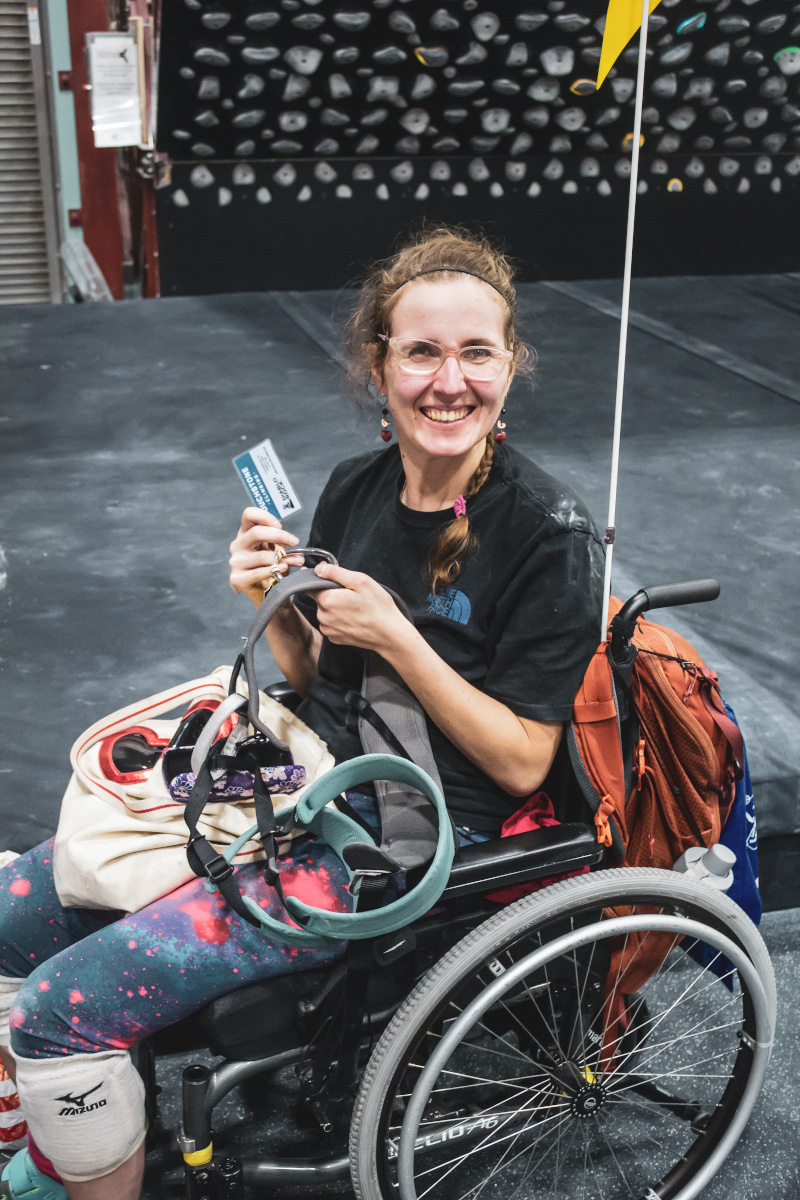
Do you have any resources or advice for people interested in learning more about adaptive climbing or adaptive sports?
There are lots of places that one can look if they want to learn more about adaptive climbing! Here are a few resources:
- The Paradox Sports Adaptive Climbing Manual is a great resource and what I used to initially learn about adaptive climbing. Paradox Sports is a non-profit organization based in Colorado that has pioneered the growth of adaptive climbing around the country.
- Adaptive sports have been around for a long time, but they have really started to gain traction in recent years. Social media is probably the best way to stay on top of the latest in adaptive sports. Our social media pages are a great way to follow what we are doing locally: Facebook | Instagram
- The Bay Area Outreach and Recreation Program (BORP) is a local non-profit organization that “…advances the lives of people with physical disabilities through sports and recreational activities.”
- The Challenged Athletes Foundation (CAF) is a national non-profit that provides funding to individuals and hosts adaptive sporting events. They run and support various programs in the Bay Area.
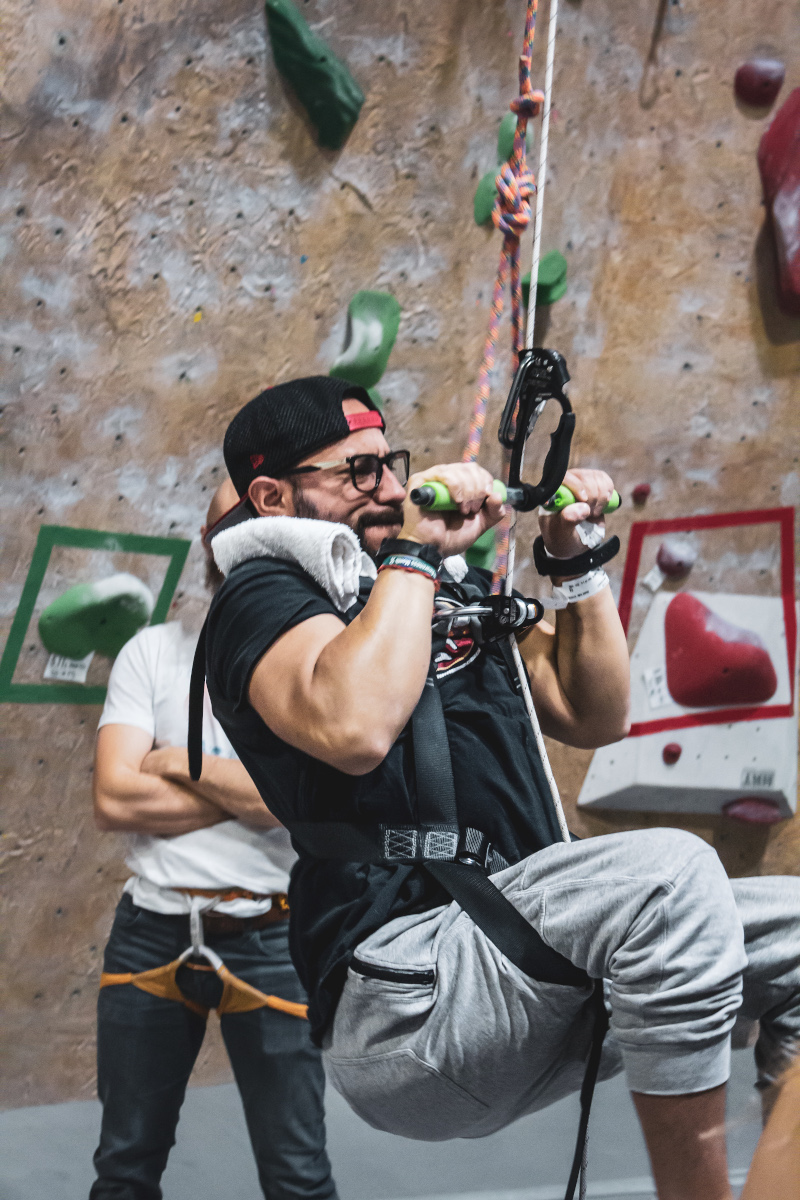
We also understand that you offer personal training for both adaptive athletes and everyday fitness enthusiasts at DRG. Can you tell us a bit about how this is distinguished from personal training for non-disabled clients? Did you have to go through an extra set of credentials to be able to work with such a diverse population?
I do! As a certified strength and conditioning specialist (CSCS), I apply my knowledge of strength and conditioning to each of my clients, which include both adaptive athletes and everyday fitness enthusiasts.
To be honest, there is not much difference from a personal training standpoint between clients with and without disabilities. I always begin by assessing the functional capabilities of my clients and then create a program to accomplish his/her personal goals.
To be honest, there is not much difference from a personal training standpoint between clients with and without disabilities. I always begin by assessing the functional capabilities of my clients and then create a program to accomplish his/her personal goals. Aside from earning my doctorate in physical therapy (DPT) & CSCS, I did not go through any formal credentialing/certification for training people with disabilities. In my experience, the most important qualities to have when working with a diverse population of adaptive athletes are keen observation and awareness of oneself and others, the ability to critically think and reflect, creativity, and a positive, can-do spirit.
